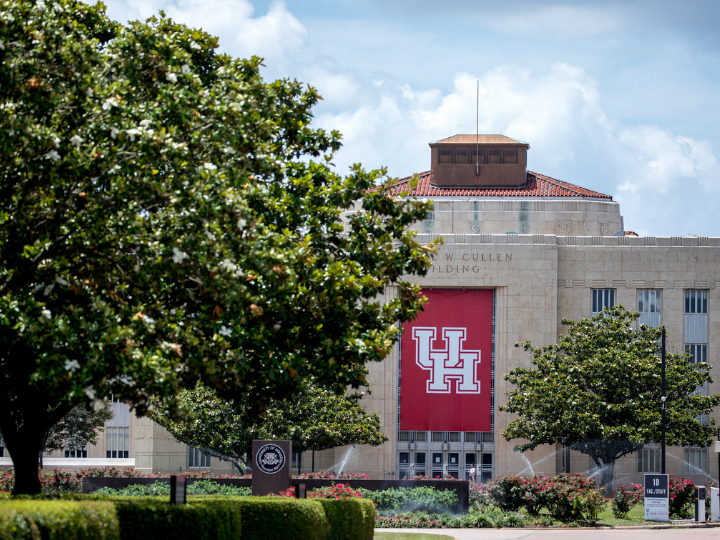
The University of Houston is part of a new consortium of Tier One Hispanic-Serving Institutions (HSI) that has received a $5 million grant from The Andrew W. Mellon Foundation to enhance teaching, research, cultural programming and archives in the area of Latino humanities studies as well as prepare rising Latino researchers and scholars for faculty positions in humanities studies.
“University of Houston graduates are leading humanities and Hispanic studies initiatives at premier institutions across the country,” said UH President Renu Khator. “The Mellon Foundation grant positions UH and the other members of the consortium to develop important pipelines for transitioning Latino undergraduates to graduate studies, and graduate and post-doctoral students to the become the next generation of professors and leaders in these fields of study.”
“Crossing Latinidades: Emerging Scholars and New Comparative Directions” is the first initiative pursued by the consortium. The three-year, $5 million grant was awarded to the University of Illinois Chicago (UIC)—the consortium’s lead institution— in support of this initiative. The grant will be shared by the consortium’s 16 institutions, all of which are federally designated as Hispanic-Serving Institutions by the U.S. Department of Education and have Tier One status — or “very high research”— from the Carnegie Foundation for the Advancement of Teaching. The consortium is led by the council of chancellors and presidents of the participating universities.
“This award not only complements the continuing efforts to build diversity among our tenured and tenure-track faculty ranks at UH, but it will also improve the diversity of the larger academy of professors in the humanities,” said Paula Myrick Short, UH senior vice president for academic affairs and provost. “This multi-institutional model of research and professional training will support the growing population of Latino students who want to pursue careers at the highest levels of academia.”
A key component of the initiative is the creation of an intensive yearly summer institute on Latino studies methodologies and theories and a mentorship program that aims to enhance the rising scholars’ comparative research skills, intellectual curiosity, creativity and critical thinking. Each university will send two pre-proposal graduate students to the summer institute, and 96 students in total will benefit from the institute and from an assigned mentor. The program also constructs a framework that will encourage comparative research across regions by faculty members drawn from the consortium institutions.
“UH’s participation in this consortium allows us to adopt best practices for supporting the professional development of Latino students, post-doctoral fellows and faculty members in the humanities,” said Mark Clarke, UH associate provost for faculty development and faculty affairs. “Effective training and mentor programs, and the creation of robust inter-institutional transfer pathways for these scholars to move amongst consortium members lays a strong foundation for their professional development and future success in the academy.”
UH currently has a number of programs that serve Latino students and faculty members and advance scholarship in Latino humanities. The programs include the UH Undergraduate Mellon Research Scholars Program in the Honors College, the first-of-its-kind U.S. Latino Digital Humanities Program in the College of Liberal Arts and Social Sciences—both funded by Mellon Foundation grants, Department of Hispanic Studies, Arte Público Press and the Center for Mexican American Studies, which includes visiting scholar, graduate fellowship and faculty affiliate programs.
While the consortium’s first initiative is focused on the humanities, plans are currently being developed to expand opportunities across more fields of study, including STEM.
Along with UH and UIC, the institutional partners in the consortium are the Graduate School and University Center of the City University of New York; University of Arizona; University of California, Irvine; University of California, Riverside; University of California, Santa Barbara; University of California, Santa Cruz; Florida International University; University of Central Florida; University of New Mexico; University of Nevada, Las Vegas; University of North Texas; Texas Tech University; University of Texas, Arlington and University of Texas, El Paso.